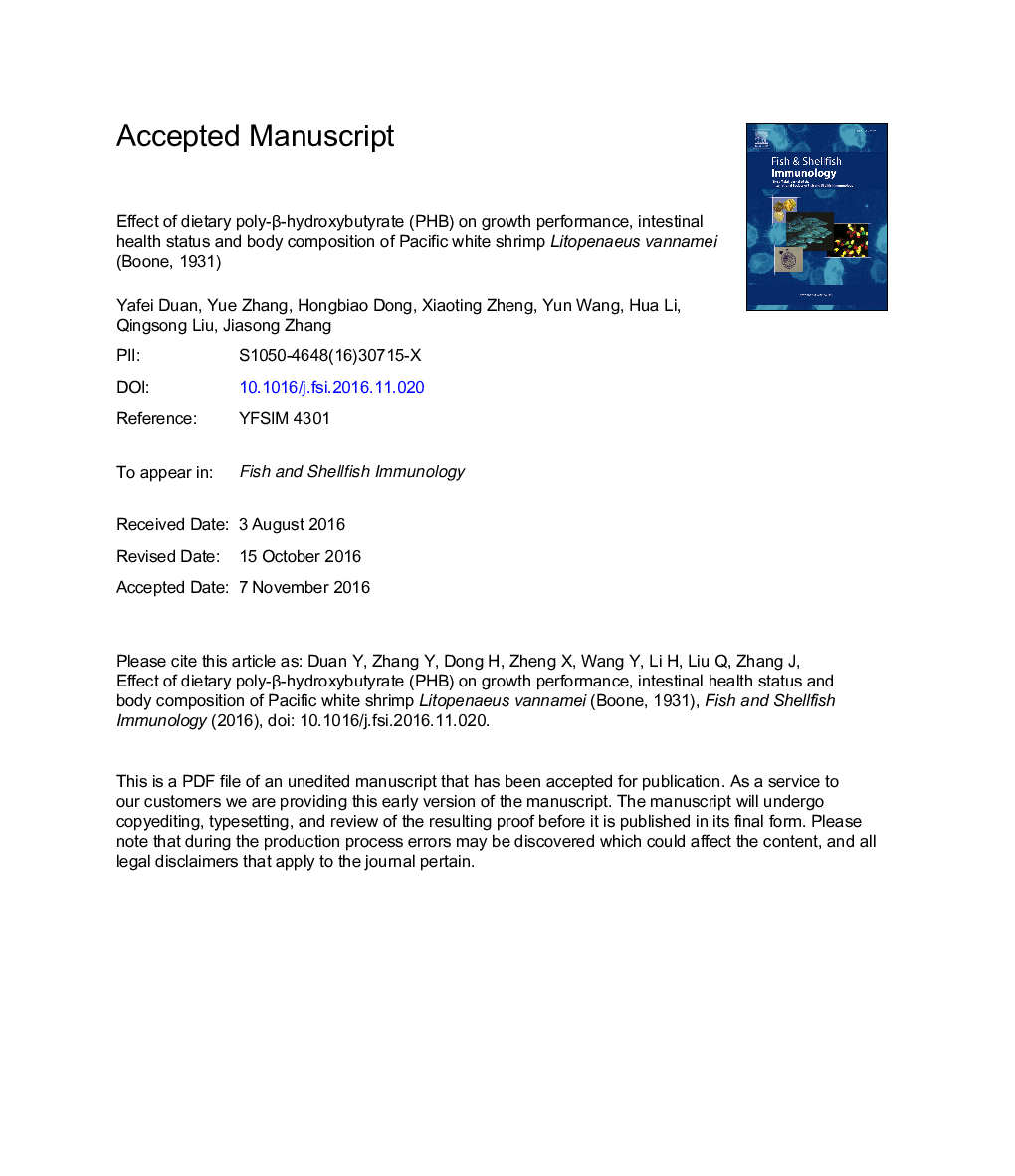| Article ID | Journal | Published Year | Pages | File Type |
|---|---|---|---|---|
| 5541017 | Fish & Shellfish Immunology | 2017 | 38 Pages |
Abstract
In the present study, the effect of dietary supplementation of poly-β-hydroxybutyrate (PHB) on the growth performance, intestinal digestive and immune function, intestinal short-chain fatty acids (SCFA) content and body composition of Pacific white shrimp Litopenaeus vannamei (Boone, 1931) was evaluated. The shrimp was fed for 35 days with four different diets: 0%, 1%, 3% and 5% PHB supplemented feed. The results indicated that supplementation of PHB significantly increased the growth performance of the shrimp, and the feed conversion rate (FCR) in 3%PHB treatment group was significantly lower than the control (P < 0.05). The intestinal amylase, lipase and trypsin activity in the three PHB treatment groups were all significantly higher than that of the control (P < 0.05), but the pepsin activity were only significantly affected by 3%PHB treatment (P > 0.05). The activities of intestinal immune enzymes such as total antioxidant capacity (T-AOC) and inducible nitric oxide synthase (iNOS) was significantly induced by 3%PHB treatment (P < 0.05), while lysozyme (LSZ) activity was significantly affected by 5%PHB treatment and nitric oxide (NO) content was significantly induced in three PHB treatments. Meanwhile, PHB induced significantly the expression level of intestinal heat shock protein 70 (HSP70), Toll and immune deficiency (Imd) gene. HE staining showed that PHB induced the intestinal health status of L. vannamei. Intestinal SCFA content analysis revealed that the content of propionic and butyric acid of 3%PHB treatment were significantly higher than that of the control (P < 0.05). Body composition analysis showed that the crude protein in 3% and 5%PHB treatments, and the crude lipid in 1% and 5%PHB treatments were all significantly higher than the control (P < 0.05). These results revealed that PHB could improve the growth performance, modulated intestinal digestive and immune function, increased intestinal SCFA content and body composition in L. vannamei, and the optimum dietary PHB requirement by L. vannamei was estimated at 3% (w/w) diet.
Keywords
Related Topics
Life Sciences
Agricultural and Biological Sciences
Aquatic Science
Authors
Yafei Duan, Yue Zhang, Hongbiao Dong, Xiaoting Zheng, Yun Wang, Hua Li, Qingsong Liu, Jiasong Zhang,
